Avoid these 12 foods if your dog is prone to allergies in 2024. Allergies in dogs can cause various health issues, and it’s essential to be mindful of their diet to minimize allergic reactions.
Certain foods commonly trigger allergies in dogs, so being aware of what to avoid can help ensure your furry friend stays healthy and comfortable. We will discuss the twelve foods that you should steer clear of if your dog has allergies.
By eliminating these potential allergens from their diet, you can help prevent uncomfortable symptoms and promote overall well-being for your beloved canine companion. Keep reading to learn more about these allergy-inducing foods and why they should be avoided.
Understanding Dog Allergies
Allergies in dogs can cause discomfort, irritation, and even serious health issues if not properly identified and managed. As a responsible and loving dog owner, it is crucial to be aware of the common types of allergies, their causes, and the symptoms to look out for. This knowledge will help you provide the best care for your furry friend, particularly if they are prone to allergies. In this article, we will explore Canine Alert: 12 Foods to Avoid for Dogs Prone to Allergies in 2024 and focus on understanding dog allergies.
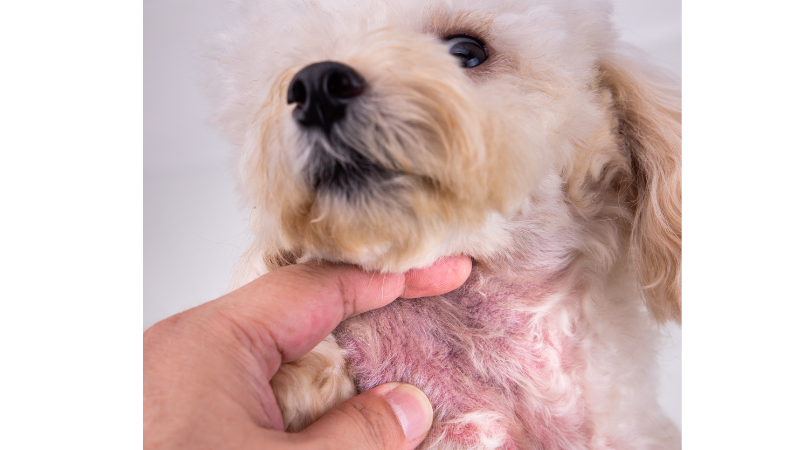
When it comes to allergies in dogs, there are several common types that pet owners should be aware of. These include:
- Food Allergies: Just like humans, dogs can develop allergies to certain foods. Common culprits include grains, dairy products, and meat.
- Environmental Allergies: Pollen, molds, dust mites, and other irritants in the environment can trigger allergic reactions in dogs.
- Insect Allergies: Fleas, ticks, and other insects can cause allergic reactions in some dogs. The saliva of these pests is usually the main trigger.
- Contact Allergies: Certain substances that come into contact with a dog’s skin, such as certain shampoos, cleaning products, or fabrics, can cause allergic reactions.
- Seasonal Allergies: Dogs can also experience allergies that are specifically triggered by certain seasons. Pollens, grasses, and other environmental factors are usually responsible for seasonal allergies.
Allergies in dogs can have various causes. It’s important to identify the underlying cause to effectively manage the allergies. Here are some common causes of allergies in dogs:
- Genetics: Certain breeds are more prone to allergies due to their genetic makeup. If your dog belongs to one of these breeds, they may have a higher risk of developing allergies.
- Weak Immune System: Dogs with weak immune systems are more susceptible to allergies. Factors such as stress, poor diet, and underlying health conditions can weaken the immune system.
- Exposure to Allergens: Your dog may develop allergies after repeated exposure to specific allergens, such as certain foods, environmental irritants, or insect bites.
- Pre-existing Health Conditions: Dogs with pre-existing health conditions, such as skin infections or autoimmune diseases, are more vulnerable to developing allergies.
It is essential to be able to recognize the symptoms of allergies in dogs. While symptoms can vary depending on the type of allergy, there are some common signs to watch out for:
- Itchy skin: Excessive scratching, licking, biting, or rubbing of the skin is a common symptom of allergies in dogs.
- Ear Infections: Allergies can lead to frequent ear infections, characterized by redness, discharge, and constant shaking of the head.
- Respiratory Issues: Dogs with allergies may develop sneezing, coughing, wheezing, or difficulty breathing.
- Gastrointestinal Disturbances: Allergies can cause digestive problems, such as vomiting, diarrhea, or excessive gas.
- Skin Irritation: Redness, rashes, hives, and hot spots on the skin are often indicative of allergies.
By recognizing these symptoms and understanding the common types and causes of allergies in dogs, you can take proactive measures to provide relief for your canine companion. Regular veterinary check-ups and a well-balanced diet tailored to their specific dietary needs are crucial in managing allergies and ensuring the overall health and well-being of your beloved pet.
Foods To Avoid For Dogs With Allergies
When it comes to keeping our furry friends healthy, it’s important to be aware of the foods that can trigger allergies in dogs. Just like humans, dogs can experience allergies to certain foods, which can lead to discomfort and even serious health issues. To help you keep your canine companion safe and allergy-free, we’ve compiled a list of 12 foods to avoid if your dog is prone to allergies. From chocolate to spicy foods, let’s dive into the details.
1. Chocolate

It may be tempting to share a piece of chocolate with your four-legged friend, but this treat is a big no-no for dogs with allergies. Chocolate contains theobromine, a substance that can be toxic to dogs and cause symptoms like vomiting, diarrhea, and even seizures. Always keep chocolate out of your dog’s reach.
2. Dairy Products

Dairy products like milk, cheese, and ice cream may seem harmless, but they can be problematic for dogs with allergies. Many dogs are lactose intolerant, which means they lack the enzyme needed to digest lactose properly. This can lead to stomach upset, diarrhea, and other unpleasant symptoms.
3. Grains
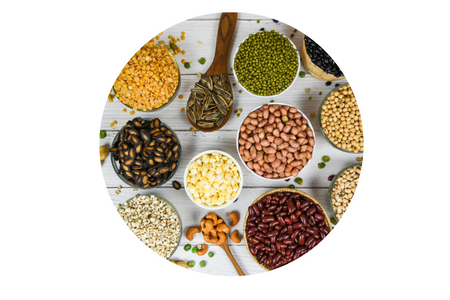
Grains such as wheat, corn, and soy are common allergens for dogs. They can cause digestive issues, skin irritations, and even trigger allergic reactions. If your dog is prone to allergies, try opting for grain-free alternatives, like sweet potatoes or quinoa, to keep their food allergy-free.
4. Soy

Soy, often found in many commercial dog foods, can be a culprit when it comes to triggering allergies in dogs. Like other legumes, soy can cause digestive problems and skin irritations. It’s best to choose dog food that is free from soy or consult with your veterinarian for appropriate alternatives.
5. Corn

Another common allergen for dogs is corn. This grain can cause digestive issues and skin problems in dogs prone to allergies. If you’re feeding your dog commercial pet food, carefully read the ingredients list to ensure it does not contain corn or any corn derivatives.
6. Eggs

Eggs, although a great source of protein, can be allergenic for some dogs. They can cause digestive problems, skin rashes, and itching. If your dog shows signs of an allergy, removing eggs from their diet might help alleviate their symptoms.
7. Fish
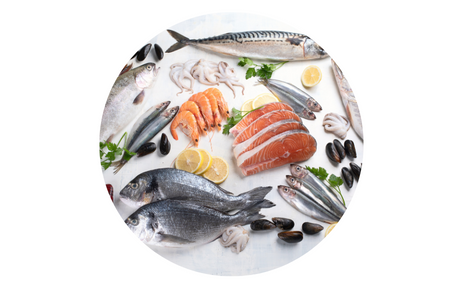
While fish may be a healthy addition to a dog’s diet, it can also be problematic for dogs prone to allergies. Fish allergies are not uncommon in dogs and can manifest as skin irritations, digestive issues, and even difficulty breathing. If your dog has a known allergy to fish, it’s best to avoid it entirely, including fish-based dog foods.
8. Citrus Fruits

Citrus fruits like oranges, lemons, and grapefruits are acidic and may cause stomach upset or irritation in dogs. While some dogs may tolerate small amounts of citrus fruits, it’s best to avoid giving them to dogs with allergies to prevent any adverse reactions.
9. Artificial Sweeteners
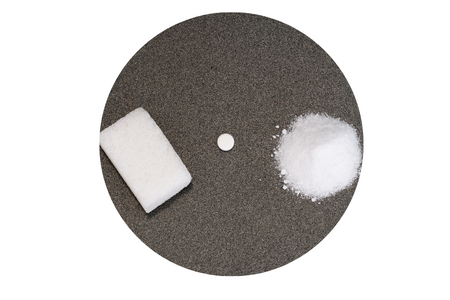
Artificial sweeteners, such as xylitol, can be extremely toxic to dogs. Xylitol is commonly found in sugar-free gums, candies, and baked goods. Ingesting even a small amount can cause a sudden drop in blood sugar levels and lead to liver damage. Always keep products containing artificial sweeteners out of your dog’s reach.
10. Nuts
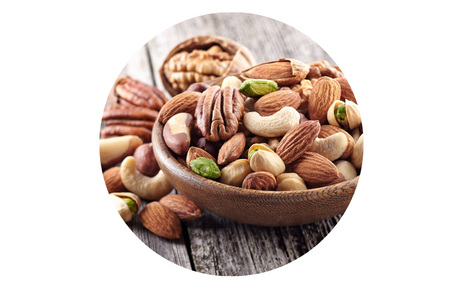
While some nuts are safe for dogs, like peanuts in small quantities, others should be avoided altogether. Macadamia nuts, for example, can cause weakness, vomiting, and tremors in dogs. Additionally, some dogs may have allergies to certain nuts, which can cause digestive issues and skin irritations.
11. Onions And Garlic
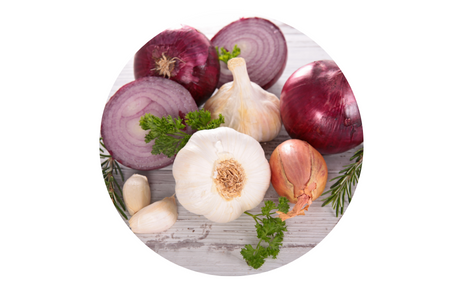
Onions and garlic, commonly used in cooking, can be toxic to dogs, especially in large quantities. These vegetables contain compounds that can damage a dog’s red blood cells, leading to anemia. Even small amounts of onion or garlic can cause digestive issues and other health problems for dogs with allergies.
12. Spicy Foods

Spicy foods can irritate a dog’s digestive system, causing discomfort and potentially triggering allergies. Ingredients like chili peppers, garlic, and onion powder can lead to digestive upset, nausea, and vomiting. Keep your dog away from spicy foods and opt for milder flavors when preparing their meals.
In conclusion, it’s essential to be mindful of the foods we give our dogs, especially if they are prone to allergies. By avoiding these 12 common allergenic foods, you can help keep your furry friend healthy, happy, and allergy-free.
Alternatives And Safe Food Options
When it comes to selecting the right food for dogs prone to allergies, it’s crucial to consider safe alternatives and options. By avoiding certain ingredients that can trigger allergic reactions and opting for allergen-free substitutes, you can ensure your furry friend stays healthy and happy.
Dogs Safe Food Alternatives To Chocolate
Chocolate is a well-known danger for dogs, as it contains theobromine, a substance that can be toxic for them. However, there are safe alternatives to satisfy your dog’s sweet tooth. Consider offering them carob, a dog-friendly alternative to chocolate that does not contain theobromine. Carob is a natural sweetener that can be found in various dog treats and is an excellent option for pampering your pup.
Dairy Substitutes For Dogs
While many dogs are lactose intolerant and cannot digest dairy products properly, there are alternative dairy options available to provide similar nutritional benefits. Coconut milk and almond milk are two popular dairy substitutes commonly used in dog food. These alternatives are lactose-free and can be beneficial for dogs with allergies or sensitivities to dairy. Remember to check the labels and choose unsweetened versions to avoid unnecessary additives and sugars.
Grain-free Dog Food Options
Grains such as wheat, corn, and soy are common allergens for dogs prone to food allergies. Fortunately, there are numerous grain-free dog food options available. These foods typically use alternative sources of carbohydrates like potatoes, sweet potatoes, and peas. They provide essential nutrients and can be a great choice for dogs with grain sensitivities or allergies.
Healthy Protein Sources For Dogs
Protein is a vital component of a dog’s diet, but it’s important to choose protein sources that won’t trigger allergies. Opt for lean meats like chicken, turkey, and fish. These meats are generally well-tolerated by dogs and offer a variety of essential nutrients. If you’re looking for plant-based protein options, consider foods such as lentils, chickpeas, or quinoa, which provide a good protein alternative for dogs with specific dietary needs.
Fruits And Vegetables Safe For Dogs
Fruits and vegetables can be a healthy addition to a dog’s diet. However, some fruits and vegetables can be harmful or even toxic to dogs. Stick to dog-friendly options like apples, bananas, blueberries, carrots, and green beans. These options offer vitamins, minerals, and antioxidants and are safe for dogs to consume in moderation. Remember to remove any seeds, pits, or cores that may be harmful.
Safe And Natural Sweeteners For Dogs
When it comes to sweetening your dog’s food or treats, it’s crucial to avoid artificial sweeteners like xylitol, as they can be toxic to dogs. Instead, opt for safe and natural sweeteners like honey, stevia, or small amounts of fruit purees (without added sugars). These alternatives provide a touch of sweetness without jeopardizing your dog’s health.
Tips For Managing Allergies In Dogs
If you have a dog prone to allergies, you know how challenging it can be to keep them safe and healthy. Allergies in dogs can manifest in various ways, from skin irritations and excessive itching to digestive issues and respiratory problems. To help your furry friend live a comfortable life, it’s important to take proactive steps to manage their allergies. Here are some essential tips:
Consulting With A Veterinarian
When dealing with allergies in dogs, it’s crucial to seek professional help. Schedule an appointment with a trustworthy veterinarian who specializes in allergies in canines. They will be able to diagnose the specific allergens affecting your dog and provide personalized recommendations for managing their condition.
Avoiding Cross-contamination
Cross-contamination can occur when your dog’s food comes into contact with allergenic substances, such as other pet foods or surfaces contaminated with allergens. To prevent this, ensure that your dog’s food and water bowls are thoroughly cleaned and separate from other pets’ feeding areas. Additionally, avoid using the same utensils or cutting boards for preparing your dog’s allergen-free meals and human food.
Carefully Reading Food Labels
Reading food labels is essential for identifying potential allergens in your dog’s diet. Look for ingredients like wheat, soy, dairy, corn, and artificial additives, which are common triggers for canine allergies. Opt for high-quality, hypoallergenic dog food that avoids these ingredients. Additionally, be cautious of hidden allergens, such as flavorings and preservatives.
Keeping A Food Diary
A food diary can be a valuable tool in managing your dog’s allergies. Monitor your dog’s symptoms and record the food they consume, including treats and table scraps. This can help you identify patterns and pinpoint specific triggers that may be causing allergic reactions. Share this information with your veterinarian, as it will aid in guiding the treatment and dietary adjustments.
Elimination Diet For Identifying Triggers
An elimination diet involves removing all potential allergenic ingredients from your dog’s diet and reintroducing them slowly to determine which ones trigger allergic reactions. Under the guidance of your veterinarian, eliminate one ingredient at a time for a set period and carefully monitor your dog’s response. This process can help identify specific allergens, allowing you to create a tailored and safe diet.
Regular Grooming And Cleaning
Regular grooming and cleaning practices are essential for managing dog allergies. Bathe your dog with a hypoallergenic shampoo designed for sensitive skin to remove potential allergens that may adhere to their fur. Regularly brush their coat to remove loose hair, dander, and environmental allergens. Keep their living environment clean by vacuuming regularly, washing bedding frequently, and minimizing exposure to dust mites.
Allergy Testing And Treatment Options
If you have a dog with allergies, it is essential to understand the various testing and treatment options available. Identifying your dog’s specific allergens and finding the right course of treatment can help alleviate their discomfort and improve their quality of life. In this article, we will discuss the types of allergy testing for dogs, medication options for managing allergies, and the benefits of immunotherapy for dogs with allergies.
Types Of Allergy Testing For Dogs
Allergy testing for dogs involves identifying the substances that trigger allergic reactions in your furry friend. There are two main types of allergy testing commonly used:
- 1. Intradermal Testing: This method involves injecting small amounts of allergens under the dog’s skin and observing their response. The skin’s reaction helps pinpoint specific allergens such as pollens, house dust mites, or certain food ingredients.
- 2. Blood Testing: Blood tests are a non-invasive alternative to intradermal testing. A small blood sample is taken from your dog, and it is analyzed in a laboratory to identify specific allergens. This testing method is typically used for dogs who cannot undergo intradermal testing due to health conditions or behavioral issues. It can also provide valuable insights into underlying allergic responses.
Medication Options For Managing Allergies
Once the allergens affecting your dog are identified, managing their allergies may involve the use of medications. Here are some common medication options for treating allergies in dogs:
- Antihistamines: These medications help alleviate itching, redness, and other allergic reactions by blocking the effects of histamines—the substances responsible for triggering allergic responses in the body.
- Steroids: Steroids, such as corticosteroids, may be prescribed to suppress your dog’s immune system and reduce inflammation caused by allergies. They can provide quick relief but are typically used for short-term treatment due to potential side effects.
- Immunosuppressive Drugs: In more severe cases, immunosuppressive drugs may be necessary to manage your dog’s allergic reactions. These medications work by inhibiting the immune system’s response to specific allergens, reducing the intensity of allergic symptoms.
Immunotherapy For Dogs With Allergies
Besides medication, immunotherapy can provide long-term relief for dogs with allergies. This treatment involves exposing your dog to small, gradually increasing doses of the allergens to which they are allergic. Over time, this exposure helps build up their tolerance and reduces the intensity of allergic reactions. Immunotherapy can be administered through:
- Allergy Shots: These injections contain extracts of the allergens your dog is sensitive to. The dose is gradually increased to desensitize your dog’s immune system, reducing the severity of future allergic reactions.
- Sublingual Therapy: Sublingual therapy involves placing allergen extracts under your dog’s tongue, allowing them to be absorbed through the mucous membranes. This form of immunotherapy can be a convenient and less invasive alternative to allergy shots.
Immunotherapy requires consistent monitoring and supervision by a veterinarian. It is a long-term approach that aims to modify your dog’s immune response to specific allergens, ultimately reducing allergic symptoms and improving their overall well-being.
Preventing Allergies In Dogs
Help your furry friend by avoiding these 12 food items that can trigger allergies in dogs prone to them in 2024. Keep their health in check with these preventive measures.
Preventing allergies in dogs is crucial for their overall health and well-being. Allergies can cause discomfort, pain, and even serious health complications for our beloved canine companions. While some dogs may be more prone to allergies than others, there are several proactive measures that pet owners can take to minimize the risk. This article will explore the key factors in preventing allergies in dogs, including choosing the right breed, proper nutrition and balanced diet, regular exercise, and maintaining a clean environment.
Choosing The Right Dog Breed
The first step in preventing allergies in dogs starts with choosing the right breed. Certain dog breeds are genetically predisposed to allergies, such as Bulldogs, Retrievers, and Terriers. By selecting a breed that is known for having fewer allergies, you can greatly reduce the likelihood of your furry friend developing allergic reactions.
Proper Nutrition And Balanced Diet
Providing your dog with a proper nutrition and balanced diet is essential for their overall health, including preventing allergies. When selecting dog food, look for high-quality options that are specifically formulated for dogs prone to allergies. These foods are often free from common allergens such as grains, soy, and artificial additives. Additionally, incorporating a variety of fresh fruits, vegetables, and lean proteins into their diet can boost their immune system and reduce the risk of allergies.
Regular Exercise
Regular exercise plays a vital role in preventing allergies in dogs. Physical activity helps to strengthen their immune system and reduce the risk of developing allergic reactions. Engage your dog in daily walks, playtime, and interactive toys that stimulate both their mind and body. Adequate exercise not only keeps them fit and active but also helps to relieve stress, another factor that can contribute to allergies in dogs.
Maintaining A Clean Environment
Maintaining a clean environment is crucial for preventing allergies in dogs. Regularly cleaning their bedding, toys, and living areas removes potential allergens such as dust, dander, and pollen. Vacuuming frequently and using pet-safe cleaning products can further minimize the risk of allergen accumulation. Additionally, keeping your dog’s coat clean and groomed will help reduce the presence of irritants on their skin, decreasing the likelihood of skin allergies.
By taking these proactive measures, you can significantly reduce the risk of allergies in dogs and provide them with a healthier and happier life. Remember, prevention is always better than cure when it comes to allergies, so start implementing these strategies today to safeguard your furry friend’s well-being.
Frequently Asked Questions On Canine Alert: 12 Foods To Avoid For Dogs Prone To Allergies In 2024
What Is The Number 1 Food Allergy In Dogs?
The number 1 food allergy in dogs is typically caused by protein sources like beef, dairy, and chicken.
What Are The Worst Food Allergies For Dogs?
The worst food allergies for dogs can include common ingredients like dairy, wheat, soy, and corn. Other potential allergens include beef, chicken, eggs, and certain fruits or vegetables. It is important to identify and avoid these triggers to keep your dog healthy and safe.
What Are The 10 Most Toxic Foods For Dogs?
The 10 most toxic foods for dogs are chocolate, grapes and raisins, onions and garlic, caffeine, alcohol, xylitol, macadamia nuts, fatty foods, raw meat and fish, and bones. Keep your furry friend safe by avoiding these harmful foods.
What Foods Are Dogs Least Likely To Cause Allergies?
Choose hypoallergenic dog foods like salmon, sweet potatoes, turkey, and peas to minimize allergy risks.
Conclusion
As a dog owner, being aware of the foods that can trigger allergies in your furry friend is crucial. By avoiding foods like chocolate, dairy products, and certain nuts, you can help prevent discomfort and potential health issues for your dog.
So, be mindful of what you feed your four-legged companion, and consult with a veterinarian to create a diet that suits their unique needs. Remember, a healthy diet is the key to a happy and allergy-free canine companion in 2024.








